OCM
5th International Conference on Biotechnology, Biomedicines and Genetic Engineering
- Home -
- Ocm
Organising Committee Members
Speaker Details

Dr. Shubhangi Salokhe (Maharashtra, India)
Speaker Details

PAOLA DEVECCHI GALBIATI (Italy)
Speaker Details
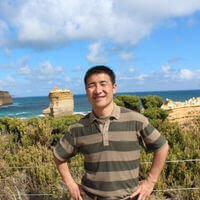
Dr. Jack Dong (China)
Speaker Details
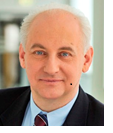
Dr. Henryk Kalisz (England)
Henryk Kalisz obtained his Ph.D. in Biochemistry at Manchester University, has published over 60 papers in reputed scientific journals. He has over 30 years of experience in industrial enzymology and biotechnology. After his Ph.D., he worked as a postdoctorate at the University of Freiburg, Freiburg, Germany, before taking up a senior scientist role at the National Research Institute (Gesellschaft für Biotechnologische Forschung) in Braunschweig, Germany. He subsequently worked as Head of Biochemistry at Pharmacia, Nerviano, Italy, and as Chief Scientific Officer at Eucodis Bioscience in Vienna, Austria. Since October 2011 he has been applying his expertise in industrial enzymology as a consultant and independent representative to provide scientific and technological advice and assistance to various Biotechnology and Pharmaceuticals organizations.
Speaker Details
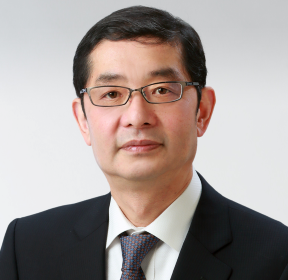
Dr. Yasuyoshi Sakai (Japan)
Prof. Yasuyoshi SAKAI has completed his PhD at the age of 28 years from Kyoto University. He is the professor at Graduate School of Agriculture, and the director of Research Unit of Physiological Chemistry, C-PIER, Kyoto University. He has published more than 175 original papers and 80 review articles in reputed international journals, and has been serving as an editorial board member of Scientific Reports, Frontiers in Microbiology, and Journal of Biochemistry. And he is the director of Japan Society for Bioscience, Biotechnology, and Agrochemistry, and served the president of Yeast Genetics Society of Japan (2015-18).
Speaker Details
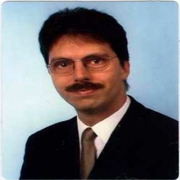
Jens Hahne (UK)
Biography
Jens C. Hahne studied chemistry and biochemistry in Freiburg im Breisgau (Germany). He received his PhD in biochemistry from the Albert-Ludwigs- University Freiburg im Breisgau (Germany) in 2000. After working in the field of oncology and translational research at several medical centres in Bonn (Germany), Würzburg (Germany), and at the Charité Berlin (Germany) he is now a scientist at the Institute of Cancer Research in London (UK). He received broad training and knowledge in molecular pathology and cancer research. At the moment, he is working in the Department of Molecular Pathology at the ICR (London, UK). He has published more than 65 papers in reputed journals and has been serving as an Editorial Board Member of repute.
Research Area
Role of transcription factors for angiogenesis, tumour invasion, and metastasis, Tumours, Interaction of tumour cells and cells of the tumour stroma
Speaker Details
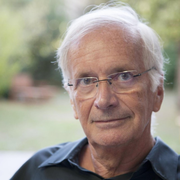
Dr. Xavier Frapaise (France)
Biography
Francois-Xavier Frapaise, M.D has over 40 years of international drug development, regulatory, strategic planning, and marketing experience at major pharmaceutical companies including Sanofi, Bayer, Boehringer, Merck, and Abbott; he has held multiple C-level positions (CSO, CMO, CEO) in different Pharmacos in the US and Europe. Until recently, he was heading Clinical Development, Medical Affairs, and Pharmacovigilance at Merck KGaA Biosimilars Division; he has extensive experience in biosimilars development acquired at Boehringer-Ingelheim and Pfenex); his recent focus of interest is Blockchain Technology application in Pharma. He has been the CSO and SVP of Optimer, has served as the CEO of Asphelia Pharmaceuticals, Inc. VP of R&D and Corporate Officer of TAP, CMO of Ocera Therapeutics, VP of Scientific Affairs at Abbott International, Head of Medical Affairs at Bayer Europe, Medical Director at Bayer France, VP of R&D at Delagrange, Head of Antithrombotics Strategic Marketing at Sanofi, Medical Director at Choay. Dr. Frapaise holds an M.D. degree from Faculté de Médecine Paris and is an INSEAD alumnus. Dr. Frapaise holds an academic position at the Thrombosis Research Center (Loyola Medical Center in Maywood (IL). He is part of the Boston-based Trestle Compliance leadership team. He now runs a consulting business, based in Paris.
Research Area
Dr. Frapaise holds an M.D. degree from Faculté de Médecine Paris and is an INSEAD alumnus. Dr. Frapaise holds an academic position at the Thrombosis Research Center (Loyola Medical Center in Maywood (IL). He is part of the Boston-based Trestle Compliance leadership team.
Speaker Details
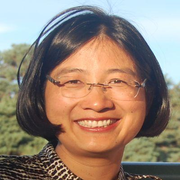
Ling Peng (France)
French National Scientific Research CenterBiography
Ling Peng is a leading expert in developing functional dendrimer nanosystems for drug delivery in biomedical applications. Dr. Ling Peng is a research director at the French National Scientific Research Center (CNRS). She carried her undergraduate study in chemistry at Nanjing University in China, then joined the group of Professor Albert Eschenmoser at Swiss Federal Institute of Polytechnic in Zurich in 1987 for her Ph.D. program. After she completed her Ph.D. thesis on the synthesis of modified DNA oligonucleotides in 1993, she spent three years as a postdoctoral research fellow in the group of Prof. Maurice Goeldner at Louis Pasteur University in Strasbourg in France, where she developed various photosensitive probes to investigate the functions of cholinesterases and biomembranes. She has successfully established bio-inspired structurally flexible and self-assembling dendrimer nanosystems for drug and nucleic acid delivery. One of the dendrimers developed by her team has been scheduled in clinical trials. Dr. Peng has coordinated and participated in different European projects and is actively involved in several European CAOST Actions. her research team has been labelled by La Ligue contre Le Cancer in France for the period of 2016-2020, and she was awarded the Prize of Dr. and Mrs. Henri Labbé by the French Academy of Sciences in 2017.
Research Area
Functional Dendrimers for Nucleic Acid Delivery, Triazole Nucleoside Chemistry for Drug Discovery, Molecular Probes, and Chemical Biology.
Speaker Details
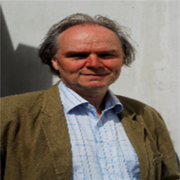
Magnus S. Magnusson (Iceland)
Biography
Magnus S. Magnusson, Research Professor, founder and director of the Human Behavior Laboratory, University of Iceland. Ph.D. in 1983, University of Copenhagen. Author of the T-pattern model and detection software THEMETM (PatternVision.com), focused on the real-time organization of behavior. Co-directed DNA analysis. Numerous papers and talks/keynotes in ethology, neuroscience, mathematics, religion, proteomics, mass spectrometry, and nanoscience. Deputy Director 1983-1988, in Museum of Mankind, National Museum of Natural History, Paris. Repeatedly invited temporary Professor at the University of Paris, V, VIII, and XIII. In collaboration between now nearly 40 universities initiated 1995 at University of Paris V, Sorbonne, based on “Magnusson’s analytical modelâ€ÂÂÂ.
Research Area
Genetic Disorders
Speaker Details

Jan Lukas Robertus (UK)
Biography
Jan Lukas Robertus was appointed as a Consultant Cardiothoracic Pathologist at The Royal Brompton and Harefield NHS Foundation Trust in February 2015. He has previously worked as a Consultant Cardiothoracic Pathologist at the Erasmus Medical Centre, Rotterdam, the Netherlands. He is the lead pathologist for computational pathology. He is also co-lead for the Royal Brompton Cardiac Morphology UnJan Lukas Robertus, received his MD at the University of Utrecht and completed his Ph.D. and registrar program in Pathology at the University of Groningen, the Netherlands. Heit is a member of the Brompton Cardiac Morphology Steering Committee. He is an Honorary Senior Clinical Lecturer at the National Heart and Lung Institute, Imperial College London. His main research interests are computational pathology, specifically in the areas of thoracic oncology, cardiomyopathies, arthropathies, and cardiac and pulmonary transplantation.
Research Area
computational pathology
Speaker Details
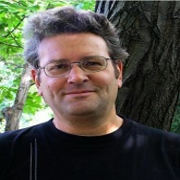
Alexander A. Kamnev (Russia)
Biotechnology
Professor Alexander A. Kamnev (born in 1958 in Saratov, Russia), DSc in physical chemistry, is a Leading Scientist at the Institute of Biochemistry and Physiology of Plants and Microorganisms, Russian Academy of Sciences (Saratov, Russia). Professor Kamnev has published over 120 papers in peer-refereed international journals, has been regularly involved as an organizer of, and as an invited/plenary lecturer at a number of international conferences, and in refereeing manuscripts for many scientific journals published by Elsevier, Springer, Wiley, RSC, ACS, etc. He has served as a member of the Editorial Boards of several specialized scientific journals including Spectrochim. Acta Part A: Mol. Biomol. Spectrosc. (“Elsevierâ€Â).
Research Area
Application of spectroscopic techniques in studying biomolecules (including biomacromolecules), complexes, supramolecular structures, and microbial cells; spectroscopic studies of biogenic nanoparticles and detection of biospecific interactions using functionalized plasmonic nanoparticles; bioanalytical applications of vibrational (FTIR, Raman) and Mössbauer (nuclear gamma-resonance) spectroscopies.

